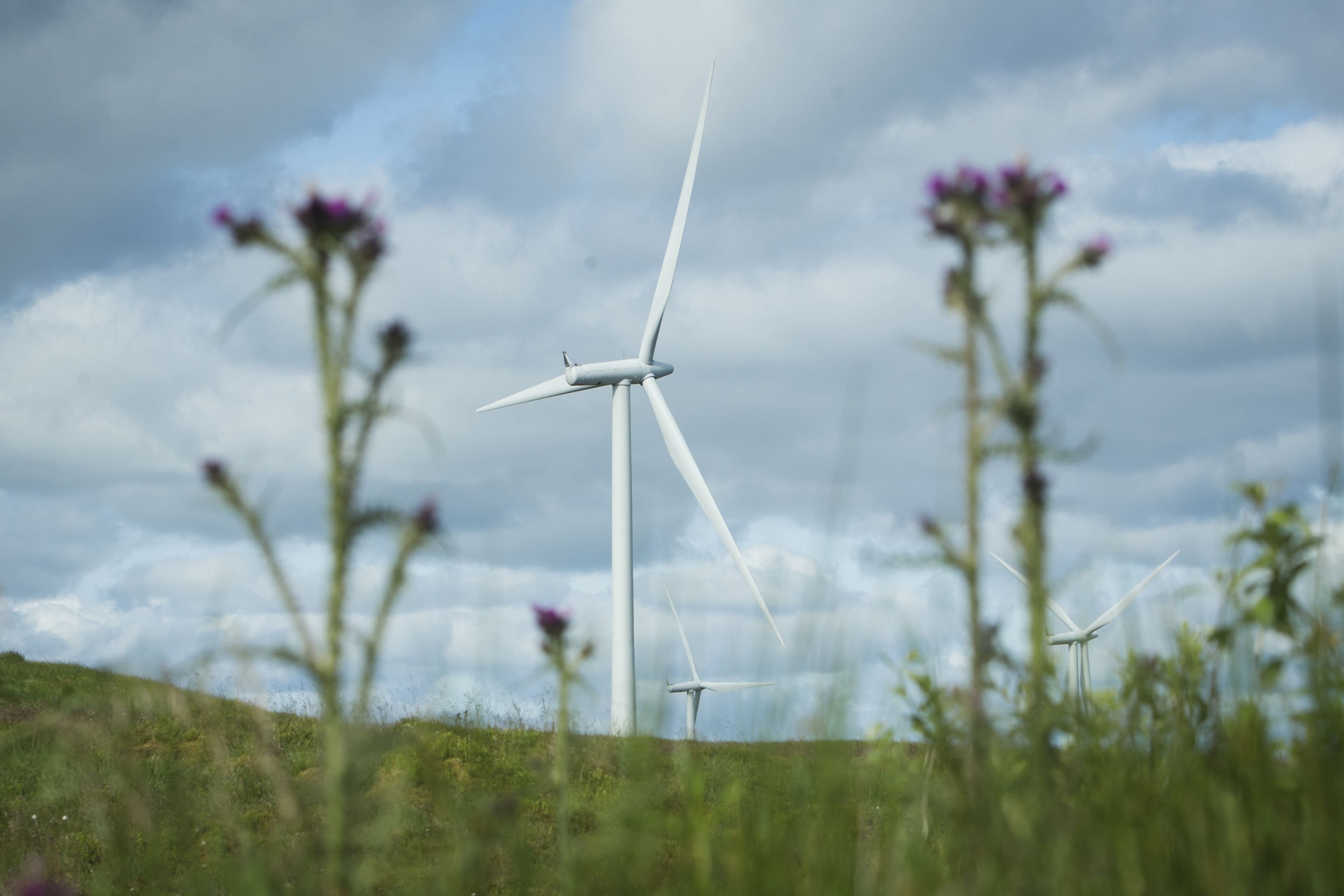‘Net zero’ runs into stormy weather but the IoD has a bright idea
Shouting at firms about climate disaster won’t work when they are already struggling with the downturn, writes James Moore


Net zero is running into some heavy weather. This week’s National Audit Office report on decarbonising our energy demonstrated just how much work there is to be done, while the Institute of Directors separately warned that only a small minority (28 per cent) of firms have plans in place to hit the net zero target.
The troubling conclusion of the report was that the government “risks not meeting its ambition to decarbonise power by 2035 because it lacks a delivery plan”.
Generators have been paid up to £62m a day to shut down when they put out too much electricity. Little attention has been paid to how to store the excess, and how to manage to switch from a small number of big generators to lots of little ones. Perhaps a modicum of political stability will see this addressed.
But just as the government has to pull its socks up, so does the corporate sector. We’ve got used to lots of glossy pictures of trees in the annual reports from larger companies, combined with lots of soothing talk and rather less action.
The results of the IoD’s polling of smaller firms shouldn’t come as any great surprise.
The number one focus for any business operating in a tough economy such as Britain’s is survival, and this is true regardless of size. Net zero is of vital importance to the planet but it all too easily becomes one of those things that can wait, especially if firms can’t see the business case for it.
In reality, that case could scarcely be more compelling because the economic damage from the climate crisis will be horrendous. All businesses risk getting burned by catastrophic climate change even if they can’t see it.
Trouble is, this is a medium- to long-term issue, divorced from day-to-day operations such as managing costs, dealing with customers, identifying new markets, seeking growth and pushing the earnings line into the black.
Shouting about deep trouble ahead isn’t going to change attitudes. The natural response? “Go away. My business is already in deep trouble. I’ve got to look after that first.”
Is it ever going to be possible to change this? Well, the IoD thinks it could be, if firms are incentivised to take the issue more seriously. Its suggestion is to offer a lower corporation tax rate to those achieving green targets.
According to its poll, two-thirds of SMEs who currently have no plan to achieve net zero say they would either be ‘much more likely’ (32 per cent) or “a bit more likely” (32 per cent) to bring one forward if they were offered the carrot of a lower corporation tax bill.
The IoD thinks this could work with relative simplicity. “When firms prepare their financial accounts they would also assess their carbon footprint and pay the appropriate tax rate on their profits depending on the result,” it says.
Treasury officials might look askance at that: what about fraud? Dodgy carbon assessments? Reduced receipts?
Those are legitimate concerns but could be dealt with by backing up carbon self-assessment with a robust regime of sanctions for those submitting dodgy claims. It’s not as if self-assessment is a new thing as regards tax.
The government has scrapped its policy of aggressive corporation tax-cutting, accompanied by boasts about having the lowest rates of any large economy in the OECD, partly because of the post-pandemic strains on Britain’s public finances and partly because it didn’t work.
The idea of cutting the levy was that it would stimulate business investment. It singularly failed to do that.
But what if lower rates were directly linked to investment? Rishi Sunak’s “super deduction”, ushered in when he was chancellor, did just that as regards general business investment. There is evidence to suggest some of it was new investment, rather than it providing a bung for plans already on the board or brought forward. Effectively-targeted tax breaks linked to net zero plans could work similarly well.
The government clearly has a lot of work to do to meet its low-carbon aims. The process could be moved along with the help of some good ideas. Tax incentives linked to investment are worthy of consideration, certainly when the public finances will allow. Think of it as an investment in the future.
Join our commenting forum
Join thought-provoking conversations, follow other Independent readers and see their replies
Comments
Bookmark popover
Removed from bookmarks